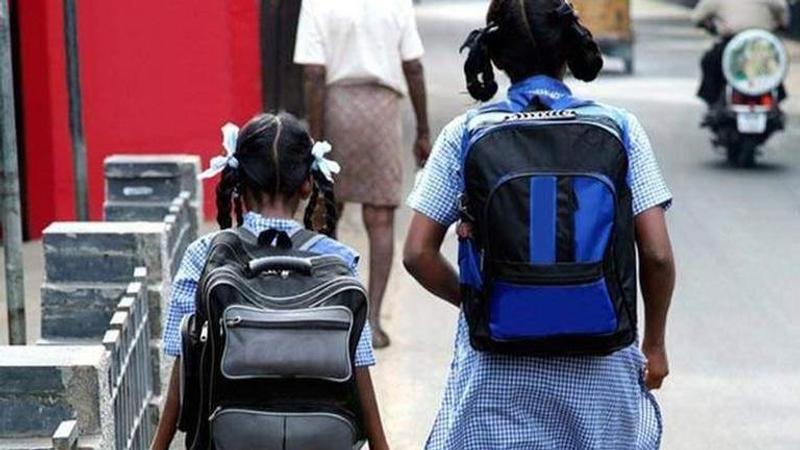Published 15:59 IST, December 9th 2020
Education Ministry: No homework up to class 2, regular monitor of school bags weight
Education Ministry suggests no homework for students up to class 2, providing lockers & digital weighing machines in schools among other things in new policy.

Advertisement
No homework for students up to class two, providing lockers and digital weighing machines in schools, making available potable water on the premises and disallowing wheeled carrier bags are among the recommendations made by the Education Ministry in its new policy on school bags.
As per the suggestions, which are in line with the new National Educational Policy (NEP), the weight of school bag for students between classes 1-10 should not be more than 10 per cent of their body weight.
"Based on research studies conducted in this area, recommendations of international agencies about the standard weight of school bag, it is recommended to follow universally accepted ratio of weight for school bag as 10 per cent of the bodyweight of the student across classes 1 to 10," it says.
Schools have been asked to keep a digital weighing machine on school premises and monitor the weight of school bags on a regular basis.
"Schoolbag needs to be light-weight with proper compartments, and (should) contain two padded and adjustable straps that can be squarely fit on both the shoulders. Wheeled carriers should not be allowed as it may hurt children while climbing stairs," the policy document says.
It adds, "Schools need to ensure that the facilities which are mandated for schools to provide, such as mid-day meals etc. are adequate and of good quality so that children are not carrying items, such as a lunchbox."
"It shall be the duty and responsibility of school management to provide good quality potable water in sufficient quantity accessible to all the students in the school to avoid carrying a water bottle in a schoolbag or reduce its size," it said.
The school or class time table needs to be made flexible, providing adequate space for sports and physical education, reading of books available in the school other than textbook etc., it said.
"For selecting a textbook for children, the criterion of weight should be taken into consideration. The weight of each textbook may be printed on the textbook by the publishers, along with the Grams per Square Meter (GSM)," it said.
The policy also talks in detail about homework for students at various levels, starting with no homework for children up to Class 2, and maximum two hours of homework every day for children in Classes 9 to 12.
"As children in classes 1 and 2 are too small to sit for long hours doing homework, they need not be given any kind of homework. Rather they need to be encouraged in the class to speak about how they spent their evening at home, the games they played, the food they ate, etc," the document suggests.
Children in classes 3, 4 and 5 should be given a maximum of two hours of homework per week, it says, adding that the teacher should ask the "evening routine for every child, dinner they took the previous night -- food items, ingredients, their likes and dislikes about different kinds of foods, who does what at their homes" for homework.
For Classes 6 to 8, the homework should be a maximum of one hour a day.
"At this stage, children develop the habit of sitting little longer with concentration, so they can be given homework such as writing a story, an essay or an article on contemporary issues; writing an article about the problems in the locality; measures for saving electricity and petrol, among other things," the policy suggests.
(Image: PTI/Representative)
Updated 15:59 IST, December 9th 2020




